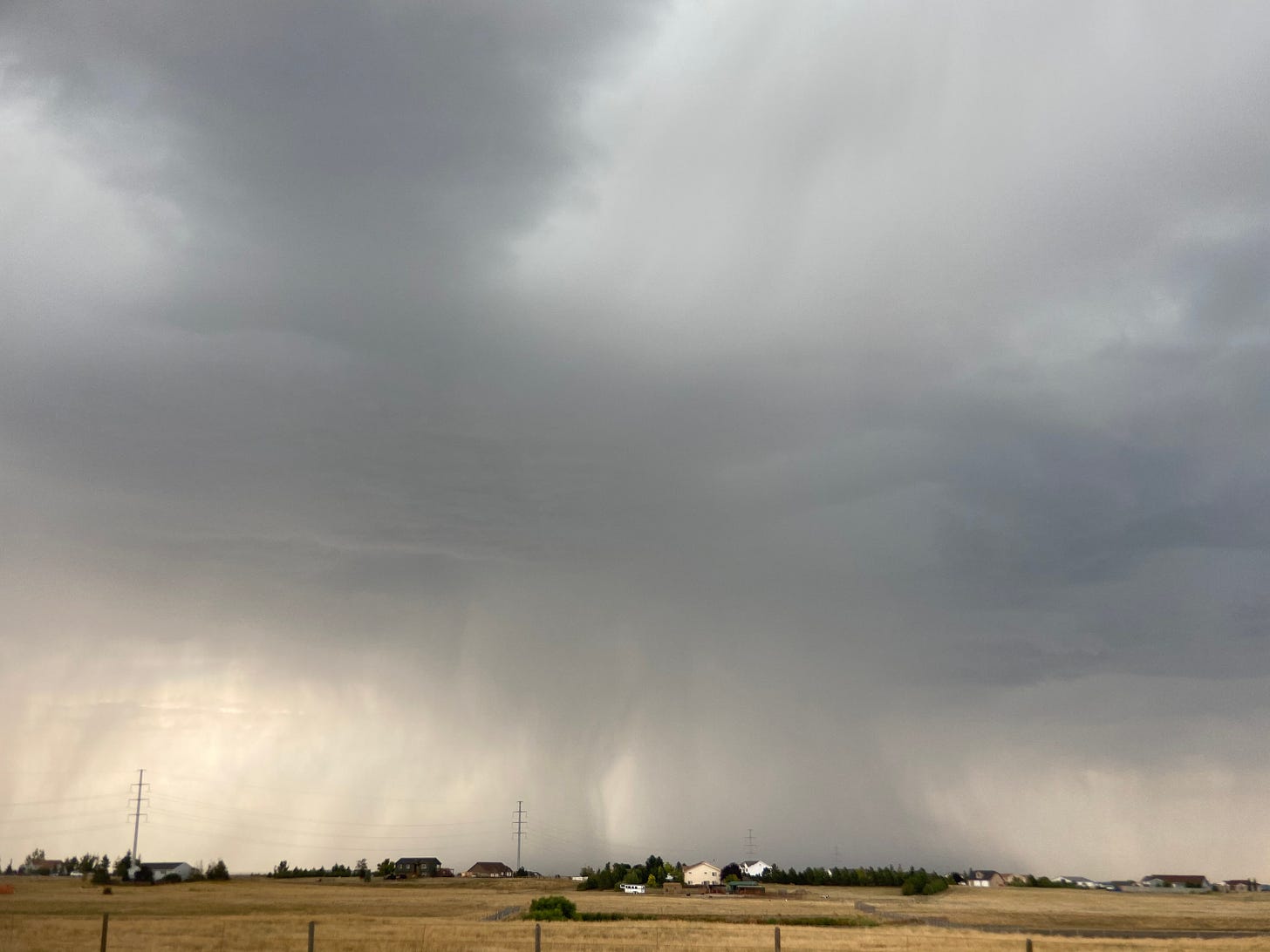That's some awe!
(No. 36) A sense of wonder reduces age-related inflammation. By Stephen P. Williams
But first, this: I want to acknowledge the readers who have suggested in FB comments that at times I see aging through rose-colored glasses. I don’t mean to make getting older seem easy. I just hope to make it easier.
Always around us

This sky at the eastern border of Wyoming and Colorado filled me with awe the other day. Photo by Stephen P. Williams
The word “awesome” was first used in the 16th century, to describe the state of feeling profoundly reverential. One hundred years later it had also come to mean, “inspiring a sense of dread.” By the 1960s it had morphed into “impressive.” And by the 80s the adjective had taken over the world. I assume it spread from California, which is where a recent study found that experiencing awe can profoundly affect your health as you age. Apparently, a sense of wonder about something potentially greater than yourself can influence specific cytokines that reduce chronic inflammation, which is a huge contributor to the aging process.
The results certainly feel intuitive. Wonderment feels good. Just the other night I was awed by the density of stars in the night sky above a rural mountaintop. Generally, people experience awe in situations where the environment seems vast, whether it’s the Grand Canyon or the first experience of Shanghai. I most often experience awe in nature and in paintings at New York’s Metropolitan Museum of Art.
You can introduce more awe into your life with a simple 15-minute “Awe Walk,” devised by Berkeley researchers. The concept is designed to make it easier for you to find awe-inducing sights and experiences, even in the everyday world.
This video contains a quick dose of awe.
Here’s how to start:
Turn off your phone.
As you walk, in the woods or the city or wherever, consciously try to imagine that you are seeing everything for the first time.
Practice taking deep breaths to the count of six, and then exhaling to the count of six, as you walk.
Feel the position of your feet. Where are they, exactly?
Listen to each of the sounds around you rather than letting them muddle together.
Find what awes you in your landscape: light patterns, noises, smells, sights. Even small things that produce that awed reaction, even if only for a moment.
Even after your walk, try to remain open to the moments of wonder that I believe are contained in nearly every moment. You might feel better soon.
Three useful notions for you
Listen to this
This recording of forest sounds is startling. I am in awe.
Two centuries of inspiring awe
My newsletter can definitely be accused of being tree-heavy. Please bear with me. In California, a few 2,000 year old redwood trees have survived the latest fires. Something for us aging humans to aspire to.
The Awe of Science
How awe is essential to the scientific inquiry that keeps us all rolling along.
At Rainbow Lake, Colorado


